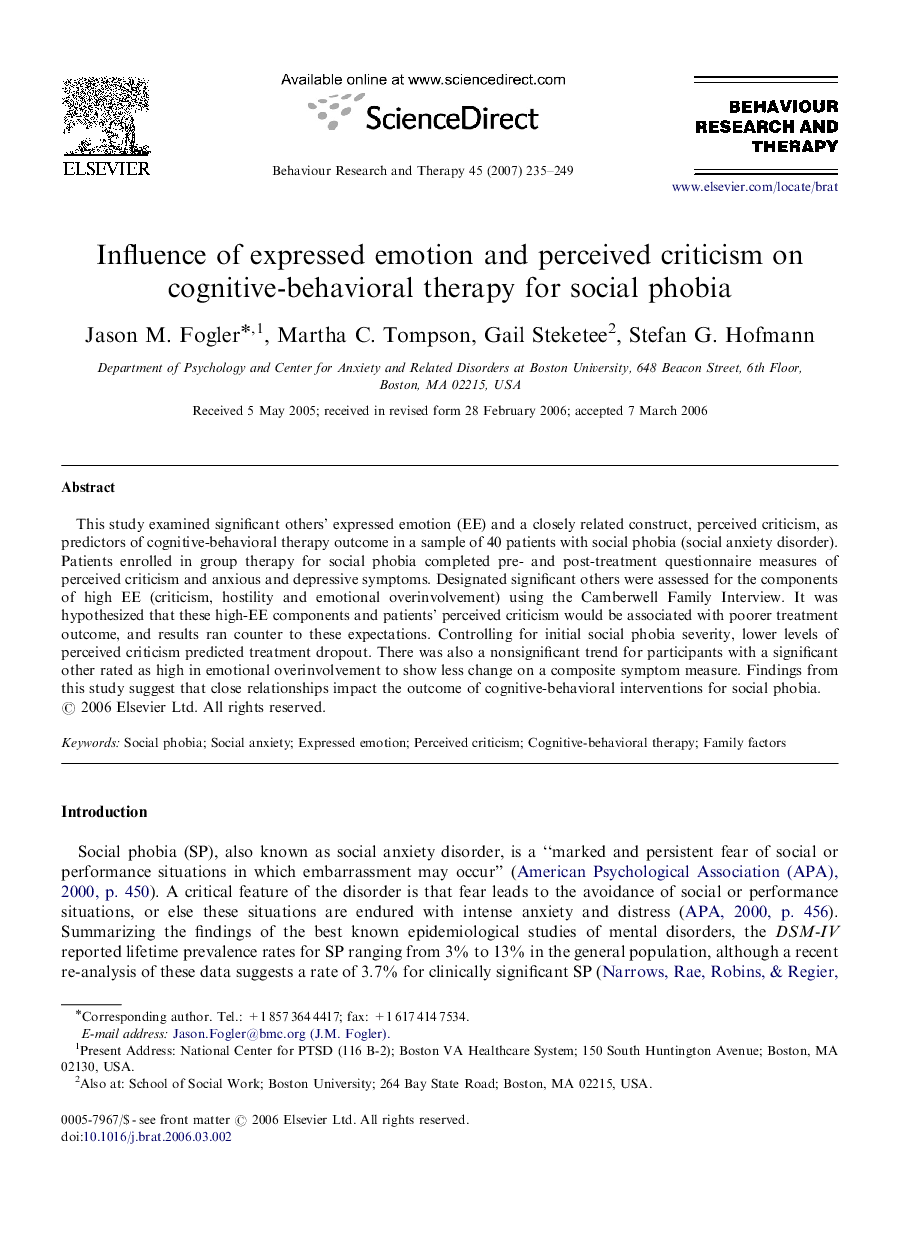| Article ID | Journal | Published Year | Pages | File Type |
|---|---|---|---|---|
| 902495 | Behaviour Research and Therapy | 2007 | 15 Pages |
This study examined significant others’ expressed emotion (EE) and a closely related construct, perceived criticism, as predictors of cognitive-behavioral therapy outcome in a sample of 40 patients with social phobia (social anxiety disorder). Patients enrolled in group therapy for social phobia completed pre- and post-treatment questionnaire measures of perceived criticism and anxious and depressive symptoms. Designated significant others were assessed for the components of high EE (criticism, hostility and emotional overinvolvement) using the Camberwell Family Interview. It was hypothesized that these high-EE components and patients’ perceived criticism would be associated with poorer treatment outcome, and results ran counter to these expectations. Controlling for initial social phobia severity, lower levels of perceived criticism predicted treatment dropout. There was also a nonsignificant trend for participants with a significant other rated as high in emotional overinvolvement to show less change on a composite symptom measure. Findings from this study suggest that close relationships impact the outcome of cognitive-behavioral interventions for social phobia.
